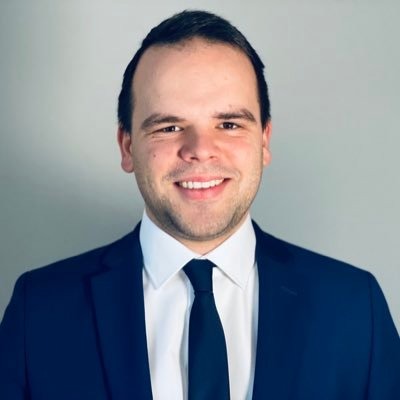In an interview with Martin Rothweiler, EWTN Germany, Archbishop Georg Gänswein, former private secretary of Benedict XVI, shared his reflection concerning the late Pope Emeritus’s final words. The interview took place at the Augustinianum in Rome during the annual symposium of the Ratzinger-Schülerkreis and the New Schülerkreis, or School Circle, of Joseph Ratzinger, gathering former students of Joseph Ratzinger and, since 2008, other young theologians inspired by the theological work of Joseph Ratzinger/Pope Benedict XVI. The former private secretary of Benedict XVI also shared the legacy of the late theologian’s work and the continuation of his life’s mission: love.
Welcome to Rome at the Augustinianum, where the Ratzinger-Schülerkreis and the New Schülerkreis of Joseph Ratzinger, Pope Benedict XVI, is once again meeting for its annual symposium, now for the first time after the death of Pope Benedict XVI. I would like to welcome Archbishop Dr. Georg Gänswein, his private secretary for many years.
This symposium is about the legacy of Pope Benedict XVI. You accompanied him intensively for almost two decades. When you think of a person's legacy, above all things, you often think back to the last words he spoke. Benedict's nurse, Fra Eligio, conveyed those last words to you. What were his last words and what did you think when you heard them?
It was on the morning of December 31, Fra Eligio said to me: Can I tell you something? Then he says he had the night watch, it was a very restless night. And around 3:00 a.m. all of a sudden Benedict says three words in Italian: Signore, ti amo! And after that he was very quiet. Fra Eligio told me I wanted to tell you this, because I think it is important and so that you know what I heard. Nobody else heard it. This is not only impressive, it is ultimately the seal, so to speak, on Benedict's life, on both his intellectual life and on his spiritual life. These are not two parallel tracks, but two realities in one. At the end of his long life, his really intense life, there are these words. He was still able to say these words, that is very important.
What did this remind you of, these words: Lord, I love you?
Whoever knew Josef Ratzinger, the theologian, the bishop, the cardinal, the pope, and has heard his sermons, read his letters, documents, and books, has noticed that one of the common threads in his theological life is love.
The fact that he can say this sentence at the end of his life, in the last minute, is ultimately also a mission. I also felt that way, it is a gift, it is a message, but it is also a mission and a confirmation that one of these basic ideas of his theology has actually found a conclusion through his life.
Benedict's spiritual testament ends with an appeal. He calls to us, "Stand firm in the faith, do not be irritated!" We live in a time of disorientation. What would he recommend to the faithful, what do we need to do in order not to be irritated?
He said in his Spiritual Testament that in his long life as theologian there were a lot of theses and antitheses. Some theses were presented with so much conviction, as if what the Church teaches in the Creed was no longer true or simply outdated. Then came other theses, claiming the opposite, and so on. The bottom line is, by whom do I allow myself to be led? Do I believe that the Holy Spirit, who is promised to us, that he also works in the church and that the church is stronger against all odds, even against the zeitgeist, and keeps us in the truth? Or do I mean that I, who now claim this and that are stronger and I let myself be seduced? For me, the decisive thing has become and remains that I actually adhere to the wisdom of the church, to the credo of the church, to the faith of the church, because that gives me security and guidance through my own life.
Edited by Jacob Stein

Rudolf Gehrig has been working for EWTN since 2013, among other things as a reporter, TV presenter, and producer. From 2019 to 2022 he was chief correspondent for German-speaking Europe at CNA Deutsch before moving to the Italian capital as a Rome correspondent and has since reported for EWTN Vatican and CNA Deutsch directly from the heart of the universal Church.







